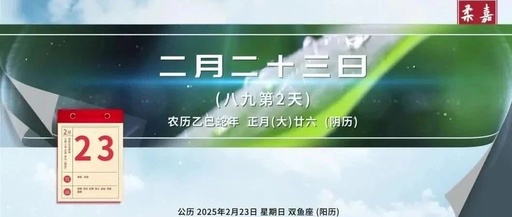 Click the blue text above to follow me and learn about moxibustion health preservation.
Click the blue text above to follow me and learn about moxibustion health preservation.

Today is the second day of the “Nine Cold Days” in winter, and those with Kidney Yang Deficiency should take good care of themselves.
1. Dietary Nourishment
During this time, you should eat more warming and nourishing foods, such as lamb, beef, longan (Dimocarpus longan), leeks, black sesame, etc., which help to tonify Kidney Yang and warm the interior. You can also try dietary therapy under the guidance of a TCM practitioner, such as Angelica (Dang Gui) and ginger lamb soup. Of course, avoid raw, cold, spicy, and irritating foods to prevent harming Yang Qi.
2. Moderate Exercise
Although the weather is cold, appropriate exercise is still necessary. You can choose gentle activities like walking, jogging, Tai Chi, or Ba Duan Jin (Eight Pieces of Brocade), which help to accelerate metabolism, promote Qi and blood circulation, and enhance physical fitness. However, remember not to over-exercise, as excessive sweating can damage Yang Qi.
3. Keep Warm
People with Kidney Yang Deficiency are particularly sensitive to cold, so it is important to keep warm. Dress warmly, especially around the waist, abdomen, and feet, as these areas are prone to cold invasion. Cold in the waist can harm Kidney Yang, while cold in the feet can allow cold to invade from the soles. Therefore, prepare waist protectors, thick socks, and warm shoes, and consider soaking your feet at night with some mugwort (Ai Ye) and ginger to help warm Yang and dispel cold.
4. Herbal Regulation
If the symptoms of Kidney Yang Deficiency are more severe, you can take some Chinese patent medicines under the guidance of a doctor. For example, Jin Gui Shen Qi Wan (Golden Cabinet Kidney Qi Pill), Bu Shen Yi Yang Wan (Kidney Tonifying and Yang Reinforcing Pill), and San Shen Wan (Three Kidney Pill) can help to warm and tonify Kidney Yang. However, be sure to follow medical advice and do not self-medicate. (The Roujia Medical School offers free online consultations and can prepare herbal decoctions, pills, or pastes.)
Doctor He from Roujia Medical School recommends the following formula:
For Kidney Yang Deficiency:10g Cinnamon (Rou Gui), 5g Black Shun Pian, 10g Cooked Rehmannia (Shu Di), 10g Chinese Yam (Shan Yao), 5g Honey-fried Licorice (Zhi Gan Cao), 10g Goji Berries (Gou Qi Zi), 10g Eucommia (Du Zhong), 10g Chinese Wolfberry (Shan Yu Rou) (Note: A prescription should be made after TCM differentiation and diagnosis).
5. Regular Sleep Schedule
Finally, you should pay attention to maintaining a regular sleep schedule, ensuring sufficient sleep, and avoiding staying up late; also, balance work and rest to avoid excessive fatigue.
6. Recommended Acupuncture Points for Moxibustion
Ming Men (Gate of Life) Point: Moxibustion at this point helps to enhance Kidney Yang, promote the rise of Yang Qi in the body, and relieve symptoms such as lower back pain and heel pain.
Shen Shu (Kidney Back) Point: Moxibustion at this point helps to warm and tonify Kidney Yang, adjust kidney function, and alleviate discomfort such as lower back and knee soreness, tinnitus, and nocturnal emissions.
Guan Yuan (Origin Pass) Point: Moxibustion at Guan Yuan helps to strengthen the foundation, tonify the lower jiao, enhance lower jiao Yang Qi, and increase vitality, alleviating symptoms such as nocturnal emissions, impotence, and menstrual irregularities.
Qi Hai (Sea of Qi) Point: This is one of the key points of the Ren Meridian; moxibustion at this point helps to tonify Qi, warm Yang, regulate the circulation of Qi and blood throughout the body, and alleviate symptoms such as abdominal distension, diarrhea, and difficulty urinating.
Zu San Li (Leg Three Miles) Point: Moxibustion at Zu San Li helps to strengthen the spleen and stomach, regulate Qi and blood, and enhance immunity, also benefiting the harmonization of the spleen and stomach and tonifying the liver and kidneys.
Note: In addition to the above points, Tai Xi (Great Stream), Fu Liu (Returning Current), Yong Quan (Gushing Spring), and San Yin Jiao (Three Yin Intersection) are also commonly used points for regulating Kidney Yang Deficiency.
The above content is for reference only and should not be used as a basis for diagnosis. Do not blindly self-medicate. Different individuals have different physical conditions, and the formulas used may vary; it is recommended to seek professional medical help.It is advisable to first differentiate your constitution before moxibustion and choose suitable moxibustion methods and points under the guidance of a doctor. If you are unsure of your constitution, you can scan the QR code below to contact me for a free constitution differentiation..


END


